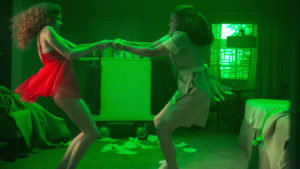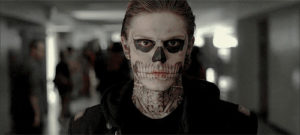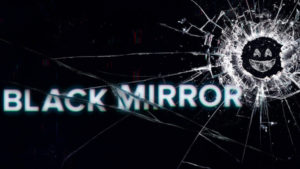

I am a proud member of the “Netflix” generation. The Netflix generation created the act of ‘binge-watching’ rather than waiting once a week for a new episode to begin like some pleb (my sincerest apologies to the generation before me). I can gear up, prepare as if I am about to hibernate for the winter and be able to watch the new season of Orange is the new black, Veep, Vice Principals, or whatever the binge-watching platforms have to offer me. My dad has taken advantage of this shift in television history and has hopped on board. We bond over certain shows, and we call it our ‘guilty pleasure’ as if, the act of locking yourself up in a dark room for many hours in the night watching episode after the next is something to be ashamed of and we should recognize it as such. So it was a surprise when we both fervently texted back and forth of the upcoming HBO series, Room 104 and after a few episodes my dad texted
Dad: Too Confusing. I am done. Not a series for me.
I was shocked. I mean I have watched almost every episode of what I think is one of the most exciting anthologies of our time, but my dad did not have the same opinion. Then after thinking about it, I realize that there is a generational gap on the enjoyment of anthologies. My dad is used to the comfort and stability of television series having a fluid procedural structure where I am of the age of binge-watching where television can be expounded to an art form, and many directors can play with the format.

Since the 1940s there have been over thousands of television programs written and produced. Some taking popularity with the public by a storm, and adversely most shows do not make it past their pilot. A particular factor that is crucial to the element of crafting a ‘popular’ television show is like everything else we have to take into account in life: Time and Place.
When broadcast television blossomed in the 1940s stories could have television series that followed a storyline week to week. Inevitably that became the way we watched movies all throughout the sixties and early two thousand. Even today, most prime time slots are serial styled sitcoms and television series. We, the Netflix generation, are on the brink of revolutionizing television and the way we watch tv. As you look at a Netflix original series, you’ll notice that there can be up to 3-4 episodes before a cliffhanger when before, each week would leave you dangling, therefore, bringing you back the following week. Netflix can do this because our watching habits are changing and studies show that Netflix can have your attention for at least three episodes before dropping a cliffhanger inevitably leading you to click the “I’m still watching” button that pops up after a couple of episodes.

I’m not saying anthologies are going to be the new way we all watch television. I have friends that hate the unpredictability and call shows like 104 sloppy. I like to see it as each storyline giving the writers and directors a chance to play with the subject at hand creatively. The interesting thing about anthologies is it only shows we are in the midst of a television revolution and it won’t be until we are telling our kids about the “good ole days” when television was only on a single website platform and not a hologram like they have today. They laugh at our reminiscing and call us lame as they take off on their jetpacks toward the virtual mall.


Recent Comments